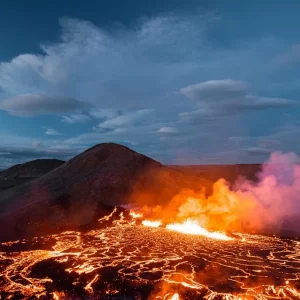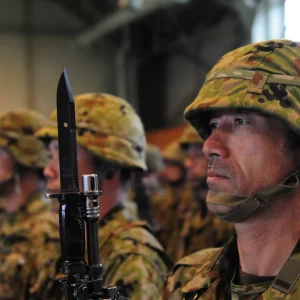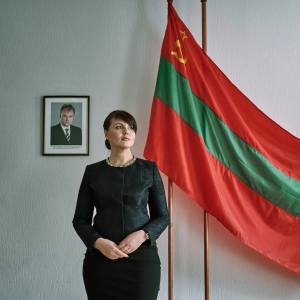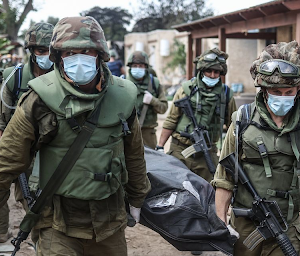
In a move that may further isolate Russia in the eyes of the West, Pyongyang and Moscow have formed a new year of friendship alliance that will deepen political and economic ties between the two countries. In his first trip outside North Korea since taking the reins of power in 2011, Kim Jong Un will travel to Moscow for a celebration on May 9th commemorating the 70th anniversary of Nazi Germany’s defeat. This commemoration also provides the opportunity to celebrate the 70th anniversary of North Korea’s liberation. Choosing Russia as the destination for his first out-of-country trip marks a shift away from North Korea’s closest ally, China.
For Russia, this new focus eastward comes as Europe and the U.S. continually isolate Russia over tensions in Ukraine. The U.S. has maintained sanctions against Russia since 2014 due to Russia’s military involvement in the Crimea and Ukraine. The White House deems such involvement as undermining democratization as such aggression threatens its sovereignty, territorial integrity, and peace. German chancellor Angela Merkel refuses to attend the 70th anniversary commemoration in which Kim will participate, primarily because of Russian backing of violent separatists in Ukrainian cities Luhansk and Donetsk.
With this shift, however, East Asia can potentially insulate Russia from harsh Western sanctions by providing a political safety net and additional energy deals for natural gas and hydrocarbon exports. Politically speaking, China abstained in a UN Security Council vote to delegitimize the Crimean referendum, and is also opposed to the spread of Western-style democracy. China has replaced Germany as Russia’s largest natural gas market after Russia agreed to secure 30 billion cubic meters of gas for China over the next three decades.
North Korea’s foray onto the scene provides Russia with a new round of benefits. First and foremost, this new alliance may just be Russia’s trump card to irritate the West. North Korea is an especially viable choice because both Russia and North Korea have a more vitriolic outlook towards the U.S. In Russia this is primarily because of continuing Western sanctions, and in North Korea, political tensions have carried over from the Korean War. Russia’s increased ties with a pariah state demonstrate that despite its annexation of Crimea and aggression in eastern Ukraine, political and economic allies are not impossible for Russia to find. In economic terms, Russia-North Korea trade is set to double to $1 billion (or 51.37 billion rubles) a year in the next decade. Russian businessmen will also gain easier visa access and coveted Internet and cellular access while traveling through North Korea. Russia will allow North Koreans to set up bank accounts in Russia while gaining access to North Korean mineral resources that, in full, double the global quantity of rare earth oxides.
In North Korea, the benefits reaped are manifold. After the fall of the Soviet Union, the assistance North Korea received as a communist nation was abruptly cut short, and was a chief cause of destabilizing its economy. However, in 2014, amid rising standards of living in North Korea, Russia cancelled 90%, or $10 billion of North Korean debt, and vowed to use the remaining $1.09 billion over the next two decades in building a gas pipeline between North Korea and Russia and a railway to South Korea. Considering that North Korea is a pariah state also under considerable sanctions, its newfound alliance with Russia gives it a powerful protector on the UN Security Council and has opened the door for Russian business delegations to North Korea to spur Russian trade and investment with a Business Council for Cooperation that will seek to ensure that volume of trade reaches $1 billion a year.
This year of friendship creates profound implications for East Asia and beyond. Russia is wedging itself in at a strategic time, as China – North Korea’s primary aid giver – is openly troubled with North Korea’s nuclear testing. Following Kim Jong-il’s death in 2011, Chinese president Hu Jintao reaffirmed that China would pursue “joint efforts” to strengthen China-North Korea ties. However, since North Korea’s 2nd military test in May 2009, Beijing has rejected joint consultation proposals. China again raised concerns with the 2012 launch of a rocket powered by ballistic military technology, which is expressly forbidden by Security Council Resolution 1874. Moreover, China regards North Korea rather frostily after Kim ordered the execution of his uncle Jang Song Thaek, a man who had notably strengthened ties between Pyongyang and Beijing. China has continually reiterated that it supports denuclearization and would like to resume Six Party Talks between the U.S., North Korea, China, Russia, Japan and South Korea that had been ongoing since 2003. This push-pull relationship has prompted Pyongyang to search for other potential allies. With Russia on the horizon, this may signify the decline of North Korea-China relations as we know it.
Implications for the West are equally bleak, as North Korea is staunchly unwilling to leave the world’s nukes club. Even with the American policy of “strategic patience” regarding North Korea’s nuclear weapons program and Obama’s 2009 promise to end adversarial relations with dictatorships, North Korean scientists continue to make headway on enriching uranium and building a light water reactor. After North Korean officials turned the tables following the 2012 Leap Day Agreement and launched a weather satellite powered by UN-banned ballistic missile technology into outer space, the Obama Administration maintained that no genuine benefit is to come from a nation that continually rebuffs U.S. attempts to engage diplomatically.
The chief political benefit that arises from this new alliance is if Russia encourages North Korea to agree to participate once again in the Six Party Talks. As previous members of the Six Parties, the U.S., China, and Russia can seek to set aside differences – namely the U.S. with Russia’s actions in Crimea and Ukraine, and the U.S. with China’s creation of the World Bank supported Asian Infrastructure Investment Bank – and unite under the common goal of denuclearizing North Korea to hold trilateral talks to draft appropriate strategy. The U.S., which has stated that it would be willing to reinstate talks if North Korea takes further first steps to denuclearization, can take a page from China and Russia’s diplomatic stance towards North Korea. China has historically refused to adversely affect North Korea when using its UN Security Council power and is also against using sanctions and other power tactics to coerce North Korea into cooperating. In turn, the U.S. can work more towards removing inflammatory rhetoric such as “the axis of evil” when addressing North Korea.
In order to ensure and encourage that the Six Party Talks resume and put North Korea back onto a path to denuclearization, it is advisable first to meet North Korea’s persistent requests for food aid. Requests have exceeded the U.S.’s willingness to provide beyond 300,000 tons. As China is North Korea’s biggest source of food and energy, and Russia has proved at least a certain degree of commitment by cancelling North Korean debt, it may be necessary for the three nations to work with one another to meet North Korea’s demonstrated needs.
Both Russia and China have already begun making gradual moves to nudge North Korea back to the negotiating table. Following North Korea’s long-range missile launch and testing in late 2012 and early 2013, Russia worked with other UN Security Council members to encourage reinstatement of negotiations. China sent its chief nuclear diplomat to Pyongyang in September 2013 and attempted to informally unite Six Party Talks nations in another round of discussions.
The future seems bright between Russia and North Korea, as increased bilateral trade and political ties between the two nations will relieve pressure from international sanctions and isolation on both sides. Russia’s foray onto the scene provides an opportunity for concrete discussion for the U.S., China and Russia to first stabilize the level of nuclear testing then gradually work towards North Korean denuclearization. Above all, Russia must lead the three nations to work towards denuclearization through several measures – either granting or withholding food aid, halting work on the Korean peninsula railroad, or refusing to unconditionally protect North Korea on the UN Security Council if nuclear testing continues. With such measures taken by North Korea’s newest ally, North Korea will be pushed much more strongly onto a path of denuclearization.




